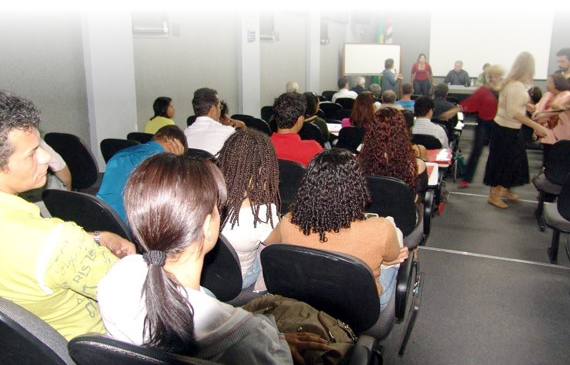|
On May 8
and 9, a seminar was held in the city of Araraquara, São Paulo, to present the
partial results of a research project entitled “The lack of sustainability of
Brazilian ethanol. Public subsidies for the sugar-alcohol sector in Brazil.”
The research
project is an initiative promoted by the Federation of Rural Laborers of the
State of São Paulo (FERAESP), the National Confederation of Food Industry
Workers (CONTAC), the Brazilian Association for Agrarian Reform (ABRA),
and Rel-UITA, the IUF’s Latin American Regional Office. The
results will be published before the end of the year and will be presented in a
main activity organized by the four organizations.
The research is
being conducted by specialists and researchers from various organizations and
institutions, such as the State University of São Paulo (UNESP), the
University of Campinas (UNICAMP), and the University of Araraquara (UNIARA),
the three leading universities of the state of São Paulo.
The two-day
event included 16 presentations on issues such as “The impact of ethanol on
the market and on working conditions,” “Land concentration,” “The
situation of sugarcane workers,” and “The sugar-alcohol complex and the
environment,” among others.
The preliminary
conclusions of the research allow us to anticipate that single-crop cultivation
of sugarcane for ethanol production will have a negative outcome, which will be
manifested in a greater displacement of family agriculture and in the
deterioration of the quality of work, wages, and working conditions of cane
laborers and even the industry’s workers, with severe consequences for the
environment and an unprecedented food security and sovereignty crisis. Moreover,
the situation is expected to worsen with the growing global demand for agrofuels.
The event was
attended by Juliano de Carvalho Filho, of the ABRA, Elio Neves,
president of the FERAESP, and Gerardo Iglesias, Rel-UITA
regional secretary.
 |